One of the things that Star Trek has consistently worked toward is representation, and especially racial representation. It started with Uhura and Chekov on the bridge, and continues today with the likes of Captains Georgiou, Burnham, and Freeman.
As April is Arab-American Heritage Month, I wanted to sit down with the first Arab member of a Trek main cast – Alexander Siddig – and hear his thoughts on what Dr. Bashir meant in terms of representation, and his views on Arab representation in the media in general.
KELAS LLOYD: You’ve spoken in the past about being a little disconnected from your heritage, but you’re one of only two^ actors with Arab heritage in big Star Trek Roles [the other being Oded Fehr,] and I was wondering if the disconnect casts that in a different light.
^ (I’d overlooked the presence of the fantastic Shohreh Aghdashloo in Star Trek: Beyond).
ALEXANDER SIDDIG: I was quite keen on the fact that my character in Star Trek didn’t exhibit “ethnic” traits, that he wasn’t particularly anything, because I quite like taking human beings as themselves and not as their perceived tribe, perceived sexuality, or any other perceived diversity. I can’t wait for those to be historical artifacts that nobody talks about, and that includes race.
I had a tough time at school and in my teens because being not-white in the UK during the 70s was prickly and you had to sort of negotiate that. I tried to push it aside, my race and my heritage. I was in a 100% British environment. My mum is from West Cheshire and that made it very difficult. I would have had to go out of my way to be ethnic.
It’s very different from my son, who was born in America and is only a quarter Sudanese but he really identified with it. I think that’s more of a luxury, than for me which was a necessity.
So when it came to Star Trek I was very happy not to be ‘the Arab’ Bashir even though the name is Arab, and I think we succeeded in that. Only really late into the series did my parents get introduced, and they weren’t introduced on an ethnic basis. I mean they obviously looked ethnic, but they were introduced as people who had somehow tampered with me and that was much more important than race.
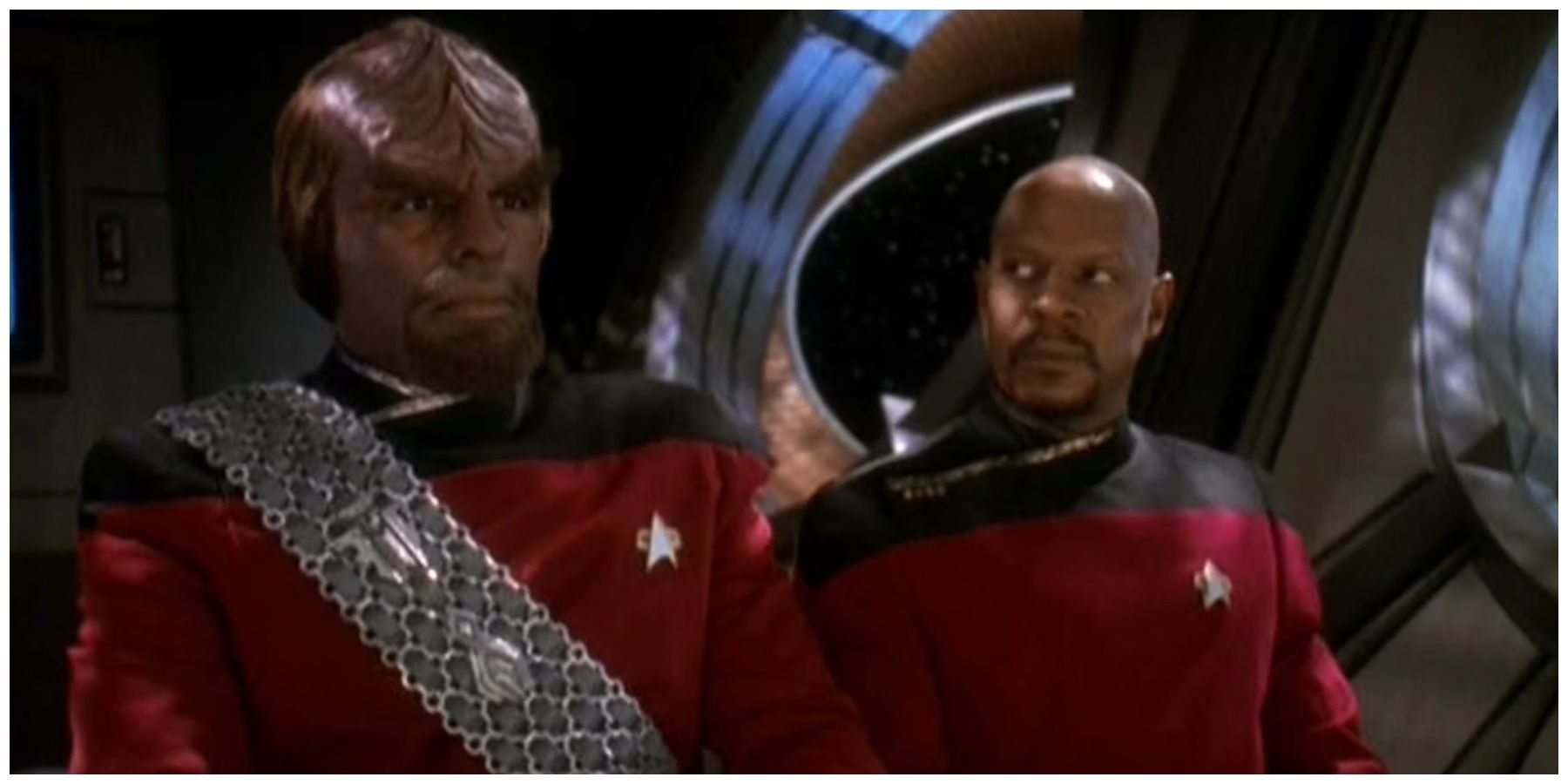
While being of a color is important for symbolic reasons in terms of diversity, people of color are often underestimated. It was great to have Avery Brooks as captain of our station and Michael Dorn in charge of the Defiant. They were important symbolically. The symbolism never escaped me but you don’t have to stress it. It just is there. My Blackness walks in the room before me sometimes and that’s one of the things you just can’t get away from in life. Until it becomes a badge of honor then I will put up with it, and one day it might.
I think if we had stressed (Dr. Bashir’s) ethnicity, it would have been a distraction from the fact that he’s a doctor, a young man struggling to get ahead in life, struggling to be somebody, struggling to find his identity. I’m glad we didn’t. I don’t think identity is necessarily related, unless you choose it to be, with your ethnic heritage. It’s a very conscious choice.
I’m sure you have some of the same issues as well. Being a woman, or a non-binary person, or man, none of these things matter until they say they do, if that makes sense.
LLOYD: It does.
SIDDIG: In terms of identity we’re all constructs, really. Right now, obviously, it’s politically very important for people to identify as neuro-diverse or gender-diverse, I’m sure I’ve left something out, just for tribal cohesion because people are struggling and people need to know there are other people like them. I never look down on people who strongly identify as Arab, or strongly identify as African-American, because we need to.
I have in my career identified strongly as an Arab, but that was after Star Trek, and after 9-11, which was a very different time. Muslims were vilified, specifically Arab muslims, so it became important to join the tribe for a while. We’re stronger together.
But it wasn’t so necessary during the 90s. Muhammed Ali was a muslim. Cat Stevens became Muslim. It wasn’t really disgusting to people to be a Muslim in the 90s. It only became disgusting after the horrific events of 9-11.
LLOYD: It’s interesting in a kind of scary way how quickly someone can become Other and feared.
SIDDIG: Mhmm. It didn’t help that the media, and we would have been included if we’d chosen to strongly identify Bashir as Arab, were portraying screaming Arabs all the time. Everyone, not just the bad media, the unreliable media. But everyone was just… wailing mothers with dead children in their arms, or young men shouting “Allahu Akbar!’ and punching the air with a Kalashnikov. These are not good images in terms of making the general public feel comfortable. It was important to have a lot of roles that countered that image. So I would often find myself playing serene, wise people, because that depiction was missing from our general narrative.
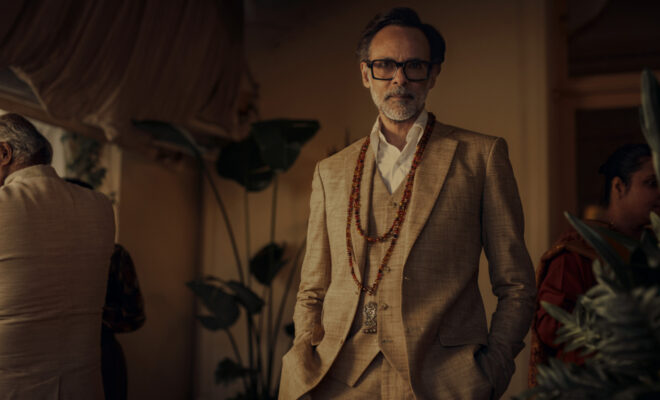
LLOYD: And you chose those deliberately if I remember right?
SIDDIG: Absolutely, absolutely. I still do! If I get an opportunity I will do everything I can to propagandize the Arab world in a more beautiful light.
LLOYD: Do you have any upcoming roles that you can talk about that really touch on that?
SIDDIG: Yeah! I’m doing a movie in Canada, in the next week or two, about a young immigrant girl who arrives in Toronto, who is not sure about her identity and needs someone to talk to.
LLOYD: That’s awesome!
SIDDIG: It’s called Jude and the Jinn. It’s about a very young girl trying to negotiate her life and become a citizen somewhere other than her birth country.
LLOYD: That’s a really timely story too, because there’s so many refugees struggling.
SIDDIG: Yeah.
LLOYD: There’s a lot of people trying to make them inhuman, almost.
SIDDIG: Absolutely. The dehumanization is the correct tactic if you want to destroy the potential of a whole bunch of people and it’s not just our ex-president doing it. And he’s doing it all the time, against anyone whose votes he doesn’t need. He says the most disgusting things about gender-diverse people, and the most disgusting things about ethnically-diverse people.
LLOYD: There is, unfortunately, a power in fearing the other.
SIDDIG:Absolutely, yeah. Mein Kampf is all about it, the importance of propaganda and dehumanizing an ethnic group to create cohesion among your own followers and disunity among the population in general. Rachel Maddow wrote a very interesting book recently called Prequel. It’s fascinating, really. She writes historically, from the 30s and 40s in America, about what was going on. It’s amazingly similar to what’s going on today and that’s why she called it Prequel.
LLOYD: I’ll have to check it out. I’d like to bring this back to Trek, though that was a good sidebar, all of it.
SIDDIG: Trek is sort of one part of us. The context is important for why I would be reluctant to make the character more Arab, more obviously Arab. And it wasn’t a decision made by the executives because they named him an Arab name. I’m guessing it was sort of my decision even though I did it subconsciously.
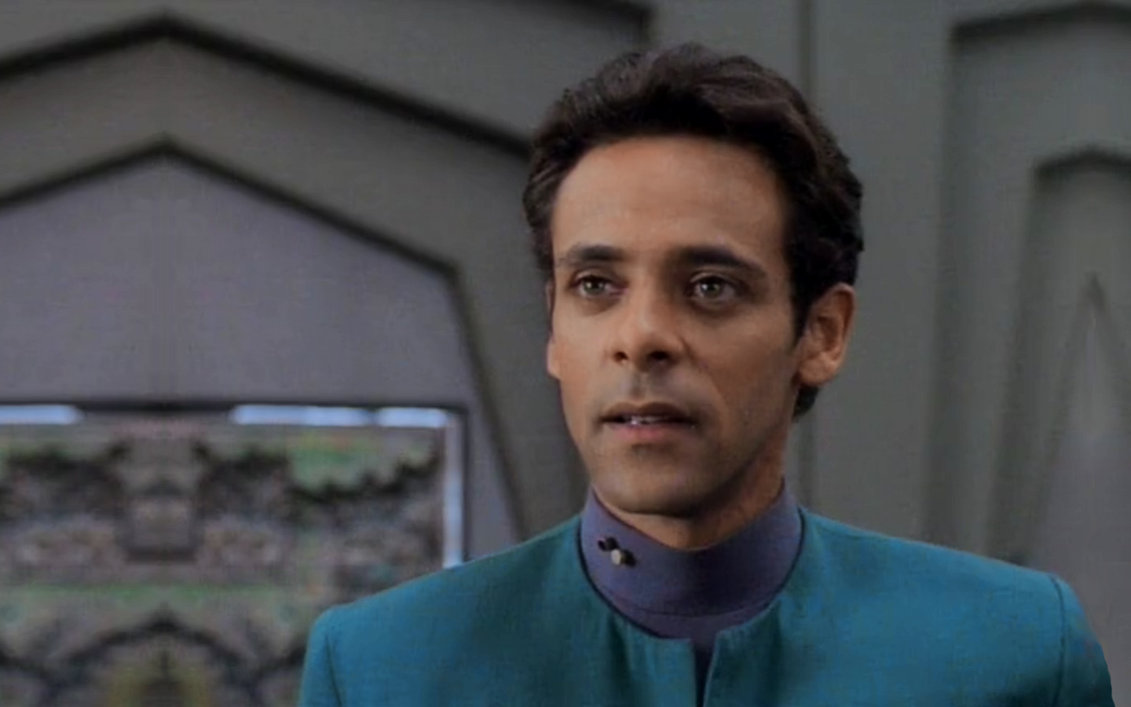
LLOYD: It was based on you, right? Wasn’t he originally a Brazilian doctor?
SIDDIG: Yes, Dr. Soros, and they changed that once they found out I was in the role.
LLOYD: So it was from the start influenced by you, which is cool.
SIDDIG: Yeah. Trek doesn’t really deal in human ethnicity. That’s not its real currency. It has so many aliens that they’ve got bigger fish to fry, if you’d like. So they will deal with that subject but they’ll use aliens to do it, as in [“Let That Be Your Last Battlefield”], for example. One person had black and white on their face and the other had it inverted. It deals on a more macro level than just the human race, but obviously the analogies are all over the place.
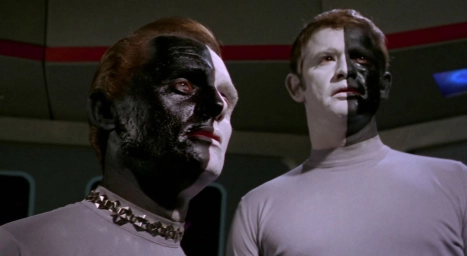
So in a sense, Oded and myself, we tend not to play our race so much because the writers are already looking ahead to interspecies squabbles.
LLOYD: That’s the freedom of speculative genres, yeah. You can critique something at a safer distance if it’s aliens.
SIDDIG: Exactly, exactly. That’s the beauty of fantasy and sci-fi, in that you can really talk about touchy subjects, difficult things, and leave nobody upset. Although Deep Space Nine did delve into that much more than other series. They would talk about human issues as humans. Past Tense rings a bell for me, homelessness in Los Angeles.
LLOYD: Yeah. That was the one with the Bell Riots, which has had a lot of talk recently.
SIDDIG: Mmhmm. And Avery Brooks talked about his African-American-ness and obviously had African-American symbolism built into his character.
LLOYD: I think honestly that made him deeper and more compelling as a character.
SIDDIG: I completely agree, and the fact that he had Jake Sisko and was trying to bring him up as a young man, especially in the African-American community, it’s a wonderful analogous relationship to problems that existed in the 90s. He did an excellent job of sensitively mirroring a Black man bringing up a Black son in a wholesome way.
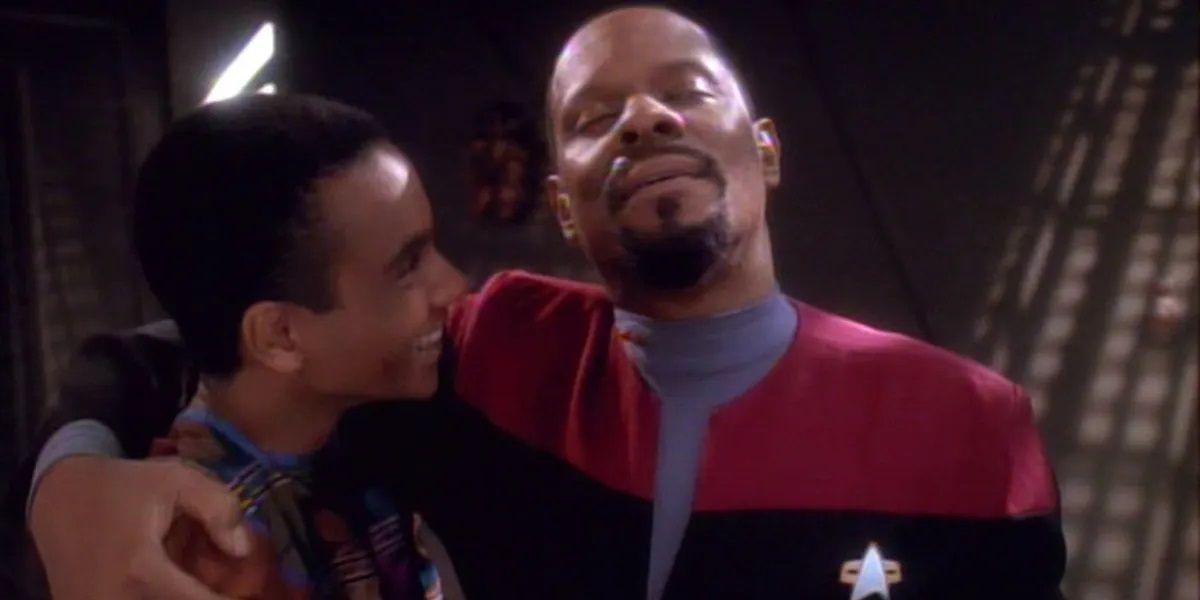
LLOYD: And it has resonance today, since Black men are imprisoned for anything.
SIDDIG: Way too many. Disproportionately so.
The Arab community doesn’t have those issues. The Arab community in the 90s was just getting on with their business.much like many other communities from around the world that existed in the United States. It was only really after 9-11 that it became extraordinarily important so in a way Star Trek didn’t need to worry so much about Bashir’s Arabness. Had we shot the show in the 21st century I suspect it would have been a much bigger deal. There would have been a lot more chat about that. Instead of the Bajorans being terrorists/freedom fighters, they may have put Bashir’s character in the middle of that instead of Major Kira. That would have been a more accurate representation of what was going on in the world at that time but it would have changed the show completely.
I’m relieved that the show ended before 9-11 so we didn’t have to answer to that. If it happened before Deep Space Nine happened at all I probably wouldn’t have been cast. I would probably have been cast as Major Kira, and Major Kira might have been cast as the doctor. Nana might have been cast as the doctor.
LLOYD: Potentially. Though I think the strength of Trek is trying to show that the stereotypes are outdated, like they had Chekov on the bridge during the Cold War.
SIDDIG: Yeah, exactly. The groundbreaking stuff, like your last project about the Women of Trek, and Nichelle Nichols’ character. For historical reasons the United States is much more preoccupied with African-Americans than Arab-Americans.
(laughing:) I’m not really helping stay on the topic of Trek, am I.
LLOYD: (also laughing) No, no, you’re fine, you’re fine. Like, the whole topic is way deeper, and unfortunately Trek really has just had the few characters with Arab heritage so there’s not a whole lot of comparisons to make.
SIDDIG: They’re very rare.
Luckily there’s a lot more now, but back in the day Arab roles were very rare to see. Omar Sharif was the only Arab of note for a long time. He was with Peter O’Toole in Lawrence of Arabia, and he did Dr. Zhivago. He’s Egyptian and very beautiful, famous for his beauty, and his bad temper.

LLOYD: I can’t bring it around to casting ratios because while Trek characters are mostly white and Black it’s not like there’s significantly fewer Arab characters than Hispanic ones.
SIDDIG: Yes! Trek is the most diverse casting in its time, in every period. Today there are trans actors working in Trek. It’s always been ahead of the game. It’s always been trailblazing away, and people are educated by that, edified. Stealth edification is the trick; you have to be entertaining first and if you can edify on the flipside, then great. Our first allegiance is entertainment. We swear allegiance to that.
LLOYD: Well if you’re not entertaining then people aren’t going to be watching and listening.
SIDDIG: Exactly. So there’s absolutely no choice.
LLOYD: Exactly. So my editor, and I, would like me to bring Garak into this.
SIDDIG: That’s interesting. There is an interesting angle for that.
LLOYD: Yeah?
SIDDIG: I think so, in that there was an insinuation of homoeroticness.
And that, from an Arab point of view, is taboo. From a Muslim point of view. So that was pretty cool. I found that, again, to be trailblazing in a sense that Islam, obviously, forbids homosexuality as a rule. Being a Muslim actor, and you only knew I was for the first couple of seasons before I changed my name, that was a ballsy thing to do. It was politically charged. And while they didn’t make it explicit, thank God, I wouldn’t have known how to deal with that, I would have been way out of my wheelhouse, any kind of sex would have been out of my wheelhouse at that age, the implicit nature of it was politically very important. A lot of gay men at that time, and maybe even gay women, kinda responded to the Bashir character. I think that was because of (Garashir,) and maybe the bravery of not only that, but also an implicitly Muslim character being potentially gay, potentially bi, potentially gay if they’d explored that route.
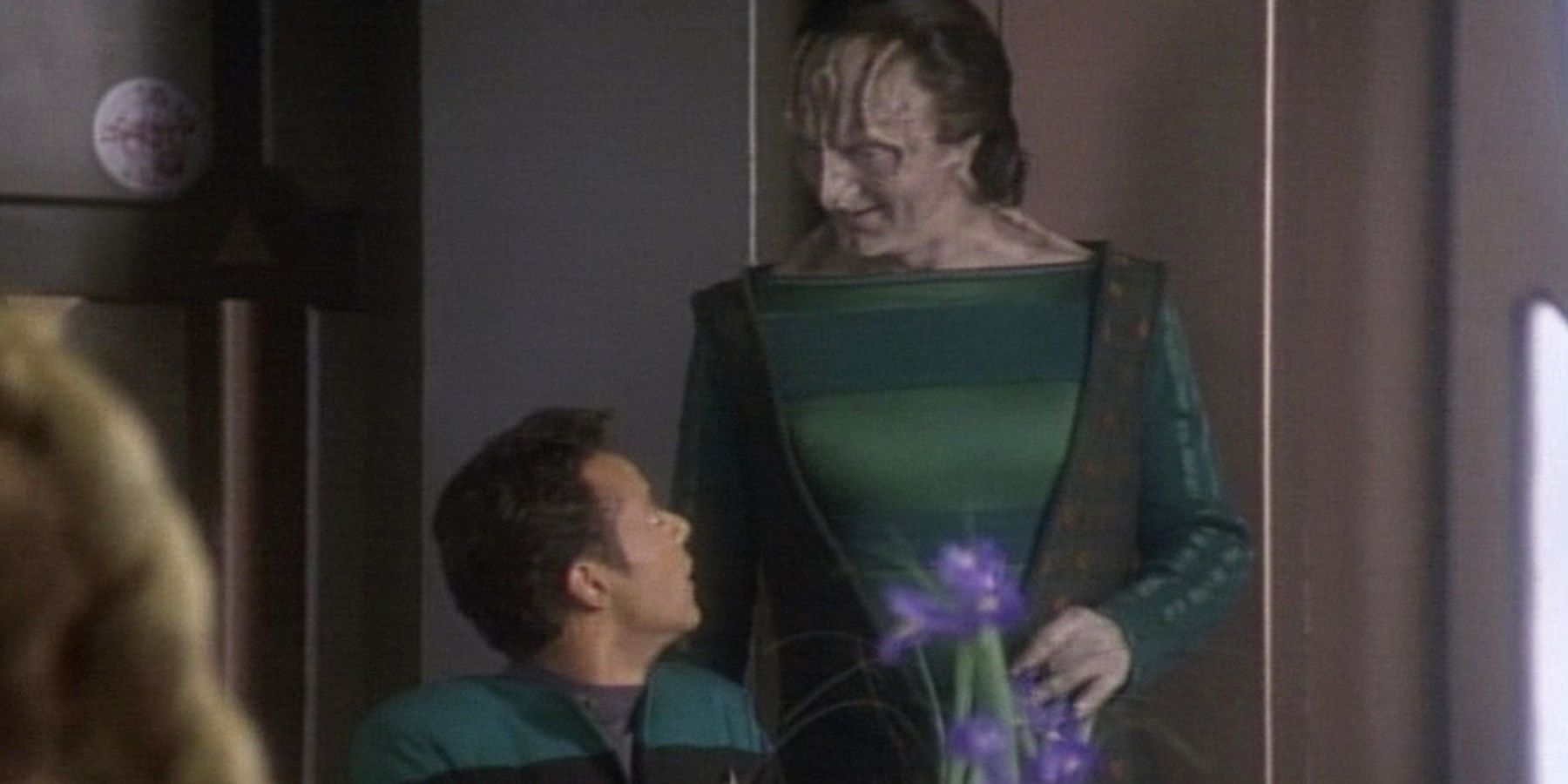
That is something Garak brought with him to the party, a bottle of implied homosexuality. I think that was something very good, very useful to the gay community, particularly for the ones who responded to Bashir, because Bashir really shone for awkward people. He really helped people who didn’t feel loved, universally loved. He wasn’t particularly appealing to the cheerleaders or the quarterbacks. He was appealing to the people who had no hope of being the cheerleader or the quarterback and didn’t want to be. The others, whatever their race, color, or gender, there were a lot who felt, in the 90s, displaced, not part of the gang. Bashir really helped express their frustration because he was just a natural boy having all the problems that a natural boy had, until he found out that he was genetically engineered and then that threw a fox into the coop.
There’s a lot of really interesting counter-culture happening with Bashir for the gay community and the awkward nerd community who never got a chance to express themselves. The true Trekkies. You go to a convention back in the 90s and the whole room is full of odd people, people who don’t fit in, who were probably self-professedly so. But they’re together in love for Trek, and given shelter from the storm of social expectations.
LLOYD: I was one of those weird people at Trek conventions in the 90s.
He could save lives, handily, and that was great. But he was never charming, until later on in the series. He was not a quarterback, or a cheerleader.
SIDDIG: There you go. And I began doing that, because I am too. I was much more then than I am now, so it was really important to me to be honest about myself, bumble my attempts at flattery and romance. He could save lives, handily, and that was great. But he was never charming, until later on in the series. He was not a quarterback, or a cheerleader.
LLOYD: So were you aware in the 90s that it was homoerotically charged and on board with that?
SIDDIG: I was aware of it in the back of my mind, yes, absolutely, and encouraged it. At my first meeting with Garak I became visibly flustered. That was entirely my choice. It wasn’t written into the script. So I set off in that direction right from the get-go. And Andy (Andrew Robinson) obviously loved it, and that character became a series-long character because of that first scene. It’s an innocuous little scene on one of the little replimats on the station, and it only lasted like five seconds but it packed a punch because of the visible, kind of a charged, discomfort. That really made it. And of course that opened the door to intimacy, and we talked very openly with each other from that point on.
LLOYD: As open as Garak ever was.
SIDDIG: Exactly.
LLOYD: That’s really cool. We’ve heard a lot of times about how Andy and Garak were on board from the start but I don’t know that I’ve heard before that you were on board from the start.
SIDDIG: I subconsciously keep that door open with just about every character that I play, and I always keep it as ambiguous as possible. One of my first roles was in A Dangerous Man: Lawrence After Arabia with Ralph Fiennes and I played Feisal and again, not in the script, but that was charged with homoerotica and implied homosexuality. I’d just come fresh off that project. And I’ve done it numerous times since, characters that are written straight I just make sure are not quite straight. That’s just one of my things, probably because I’m not quite straight myself and that’s probably perfect.
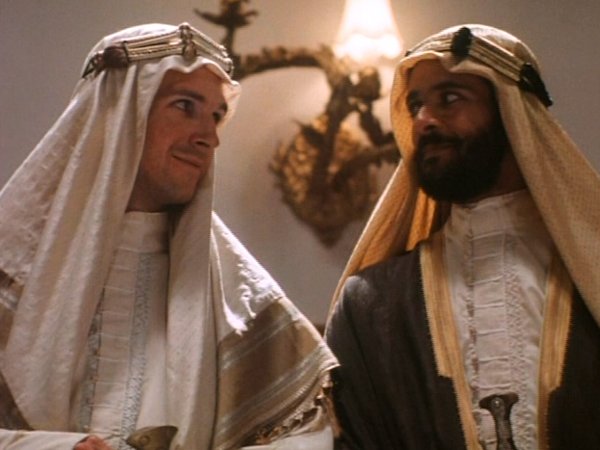
LLOYD: Very fitting, yeah. I appreciate you bringing that to characters. It’s an…
AS: It’s an empathy more than anything. A released bit. There is no one person inside anybody. There is no absolute male, and no absolute female, and we’re learning that now more than ever. And Garak wasn’t absolutely male. My first review was “And Bashir throws like a girl!” So hey, there you go, someone picked it up. They got it. They didn’t like it, but they got it. It was just very pleasing to me to watch, over the 7 years, millions of Americans coming around. Because they did not like it, they did not understand what the fuck was going on for the first two years.
Then we very blatantly did an episode called Our Man Bashir, which was just so hetero, so manly. He played the quintessential male character in James Bond who shags women for fun, you know, and people came around. But by then it was too late because we weren’t reversing. We went on with Bashir as he was. They were hooked with bait and we got ‘em. And then people started to like Bashir.
He was far and away the most unpopular character. The studio wanted to fire me for two or three years at the beginning. Rick Berman kept going to bat for me and saying “No, no, no, no, you’re not gonna fire him.” And he slowly climbed up the charts. He was never the most popular character but he became, you know, liked.
Obviously now, with the benefit of hindsight, and 21st century sensibilities overlaid on that, people like him a lot because he represents people that they know, because everybody else has caught up.
LLOYD: Yeah. The awkward nerd that does his best.
SIDDIG: Yeah! Of ambiguous sexuality, and ambiguous everything, because we are genuinely three-dimensional. All that ambiguity is the third dimension. Fourth! Four-dimensional, the ambiguity is the fourth.
When you have such a proliferation of aliens and such a wide, wide constellation of species all communicating with each other as you do on Trek, the basic ethnicity of the actor becomes rather mundane and you have to look beyond that, to the horizon. So while it’s interesting that a couple of actors have been Arab, it’s not particularly interesting to talk about the Arabness.
It’s much like Tony Shaloub in that series that he did about the neurodiverse detective. His Arabness was never questioned or talked about in the show. Monk is the show I’m talking about. That’s an Arab actor.
LLOYD: Yeah, no one did focus on his ethnicity.
SIDDIG: They didn’t talk about it at all. They didn’t need to. The great beauty of that is young Arabs get great pleasure watching a series starring someone like them. They see that someone made it from their community. They can too.
LLOYD: Also fun fact, the first time I saw him was in something kind of Trek-adjacent. I don’t know if you’ve seen Galaxy Quest?
SIDDIG: Oh I loved that. He’s brilliant.
LLOYD: Yeah, he is.
SIDDIG: I think that’s about it. I don’t know that we’ll find many more things. It’s a difficult subject, only because it’s purposefully excluded from the narrative in Star Trek on the mundane level, because they concentrate on aliens to take that heat instead. That’s their job. As you say, the analogy is much more important than the reality for sci-fi. Talking about difficult subjects is better done in a different way.
LLOYD: Yeah. On a meta level it’s very important to see yourself out there, but yeah.
SIDDIG: It’s terribly important for young Arabs around the world to see an Arab on TV like that, especially American TV because that’s the summit of accomplishment, at least in terms of how many get to see you. It’s a commercial accomplishment. It’s very encouraging, and that’s a terrific thing to have happen.
But it didn’t need saying, because the job was being done by me just being there, called Siddig el Fadil, and then Alexander Siddig. It was inescapably a brave choice by the producers of Star Trek. I think I was probably the first Arab, in any of the Star Treks. “Arab,” in quotation marks. I can’t bear these identity tags but they’re here to stay.
LLOYD: I’m pretty sure that you were.
SIDDIG: And obviously the point of Star Trek is to set it in a world that’s post-identity-angst, you know? So it would have been odd for them to make it a central focus.
LLOYD: Yeah. And I think that was really great, thank you.
SIDDIG: I’m glad to have had some value.
LLOYD: I think you have a lot of value.
SIDDIG: Why thank you.
All seven seasons of Star Trek: Deep Space Nine are currently available for streaming on Paramount+.
Keep up with all of The Beat’s Star Trek coverage here.



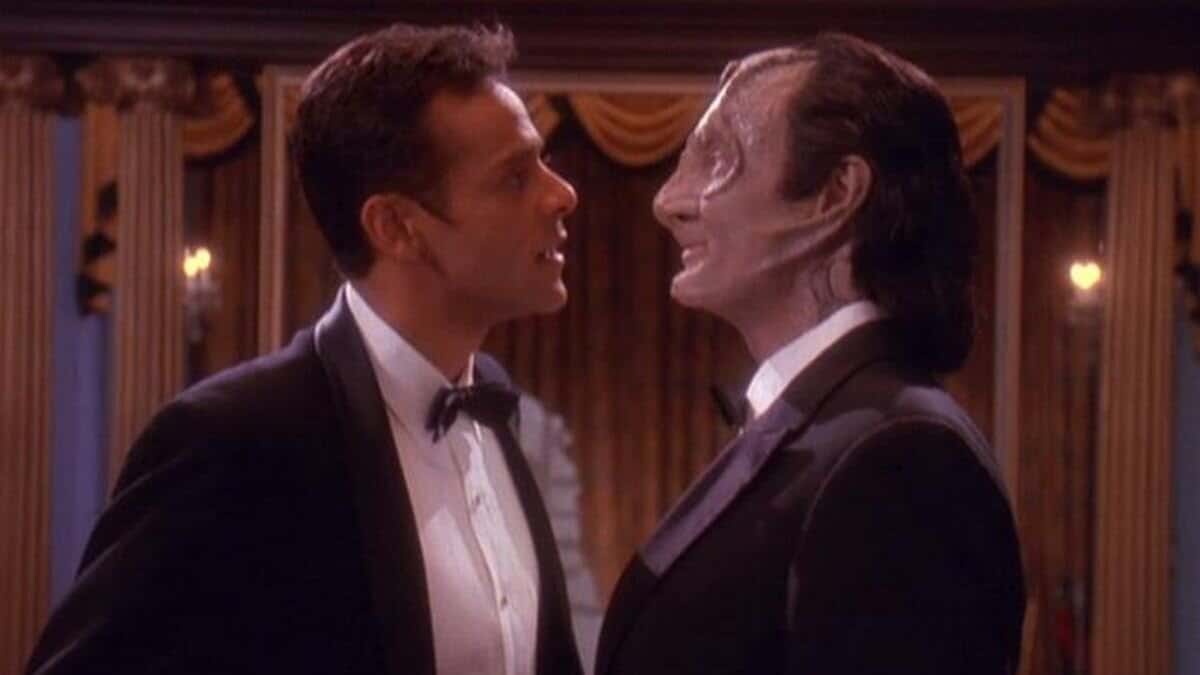
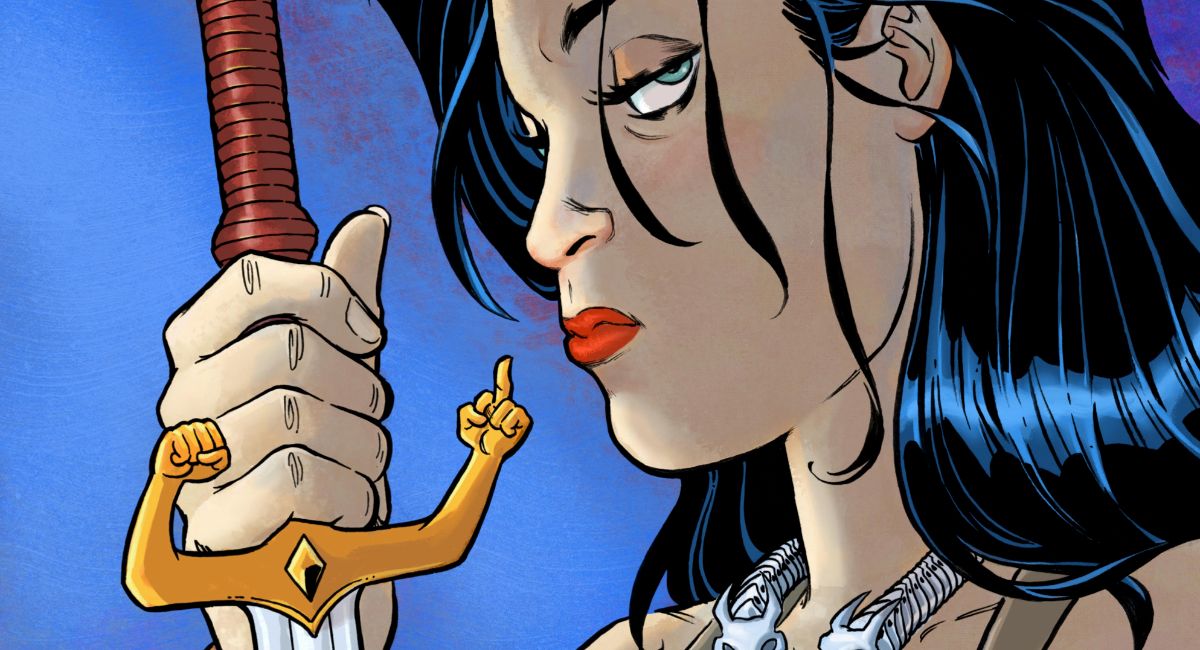
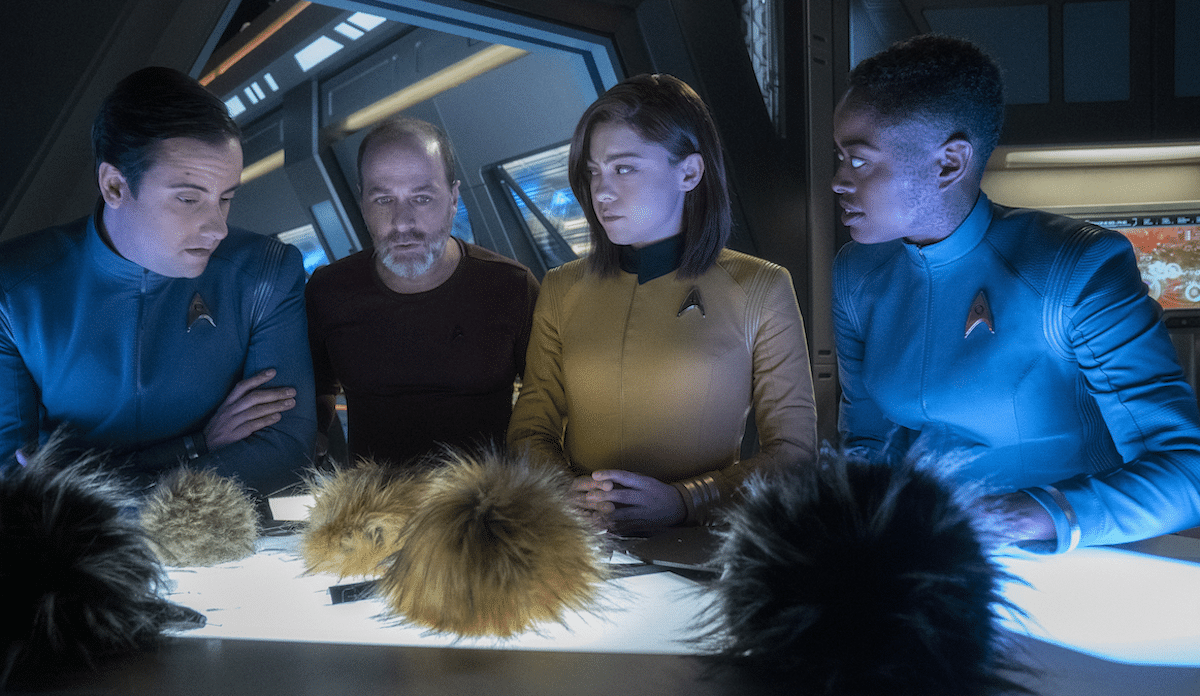
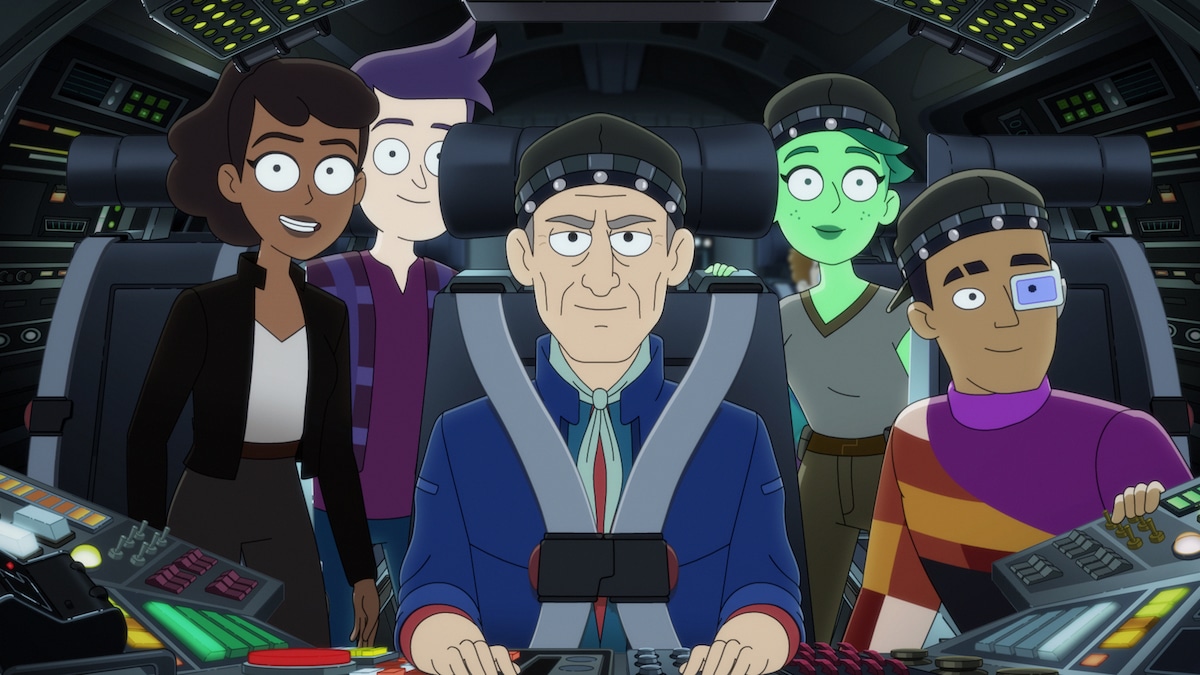
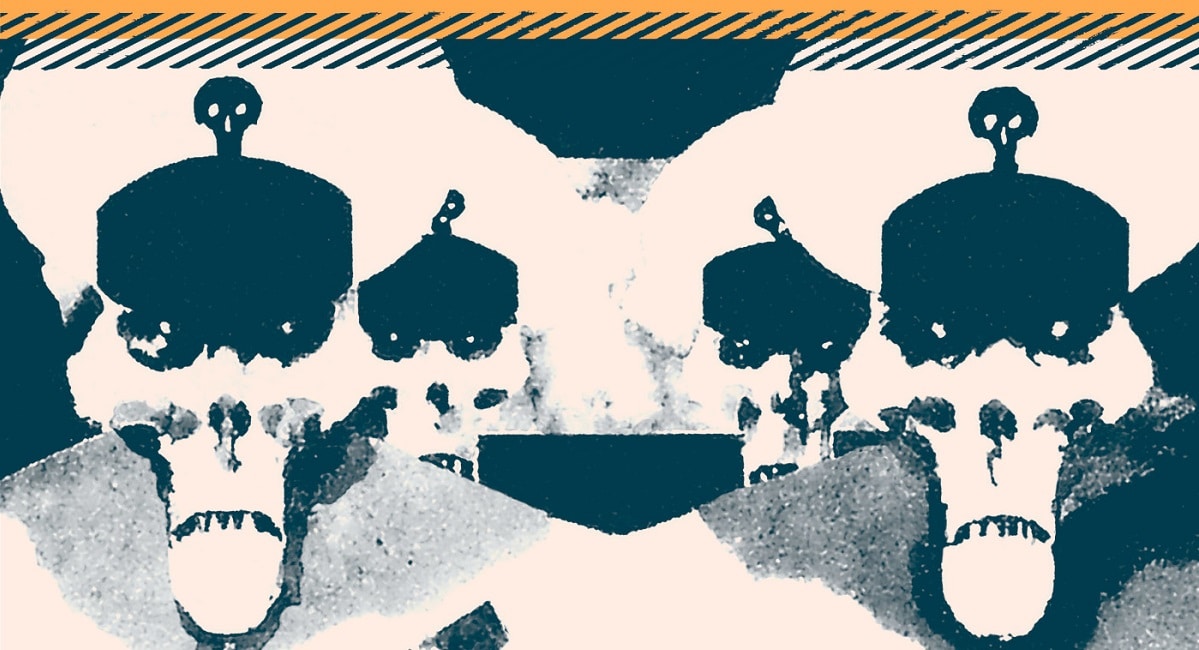


What a fantastic interview. Thanks for this.
Oded Fehr is Israeli, and not Mizrahi. No one would consider him, or his ancestors Arab.
This article was really timely because I’d just been listening to Andrew Robinson’s “Especially the Lies” interview on the Shuttlepod show (I’ve been watching it in pieces for months, lol, because I cannot sit through a whole hour), and reading Sid’s side of it was great.
Him talking about Bashir not being popular… I didn’t like DS9 in the beginning. Not much (I was 11 or 12 when it started airing). I watched for: Jake, Jadzia, and Julian. Those were my reasons for continuously trying to get into it (until I did).
Comments are closed.